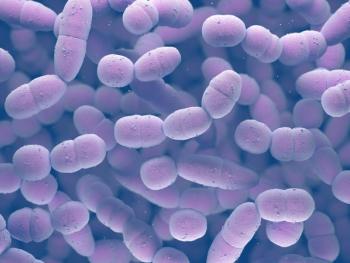
- August 2019 Back to School
- Volume 85
- Issue 8
HPV Vaccine, We Have a Marketing Problem
Research shows that vaccines prevent disease and save lives. If that is the case, why have specific vaccines been singled out as different from others, creating discord?
Research shows that vaccines prevent disease and save lives.
If that is the case, why have specific vaccines been singled out as different from others, creating discord? One example is the human papillomavirus (HPV) vaccine. The CDC recommends this vaccine for children starting at age 11, indicating that optimal uptake would prevent 13.4 million cervical cancer cases before 2100.1 Yet many parents, even those who have no con- cerns about other vaccines, balk at this one.2
The traditional education covers how and why to vaccinate but not how to deal with patient resistance. The key to addressing resistance is to understand the problem’s origins—and that it is not necessarily a science problem but a marketing one.2 In the case of the HPV vaccine, parents have been bombarded with often incorrect information.3 Misunderstanding, unfair attacks, and unsubstantiated information spread at the speed of light.2 Pharmacists can take a lesson from other beneficial products that have struggled with negative publicity.4,5 The table lists reasons why products develop bad reputations.4,5
BEST MESSAGE: SIMILAR, NOT DIFFERENT
Changing the way parents think about the HPV vaccine is like dealing with a negative label applied to an individual. The goal is to help the HPV vaccine fit in with all the other vaccines and to show acceptance benefits in society. In short, it means treating this vaccine exactly as pharmacists treat all other vaccines because their jobs and safety profiles are the same. It also pays to emphasize the positive. The online figure shows best approaches and some facts to remember.1-6
Pharmacy staff members can find additional information on numerous websites to prepare themselves to answer questions. The Shot of Prevention website3 provides a list of reasons that parents sometimes cite when they decline the HPV vaccine. It also offers information to help health care professionals discuss teenage abstinence or lack thereof, prevention versus treatment, and study results. The CDC has prepared a helpful poster that lists parents’ most common questions and best answers.6 It also has a concise web page devoted to vaccine development and testing that is designed to educate parents about the process and build confidence.7
CONCLUSION
Effective HPV vaccines have been available since 2006. The most common concern among parents is safety,2 yet clinicians have administered millions of doses of this effective, safe vaccine. Confidence in these products is strong, and pharmacists need to convey this to patients. Pharmacists must stay the course firmly and positively and present all vaccines, not just HPV, as the lifesaving tools that they are. Promote and administer the HPV vaccine in the same way and on the same day as other vaccines that are due.
Jeannette Y. Wick, MBA, RPh, FASCP, is an assistant director of the Office of Pharmacy Professional Development at the University of Connecticut School of Pharmacy in Storrs.
References
- Canfell K. Towards the global elimination of cervical cancer [published online June 6, 2019]. Papillomavirus Res. doi: 10.1016/j.pvr.2019.100170.
- Vorsters A, Arbyn M, Baay M, et al. Overcoming barriers in HPV vaccination and screening programs. Papillomavirus Res. 2017;4:45-53. doi: 10.1016/j.pvr.2017.07.001.
- Why some parents are refusing HPV vaccine for their children. Shot of Prevention website. shotofprevention.com/2013/08/20/why-some-parents-are-refusing-hpv-vaccine-for-their-children/. Published August 20, 2013. Accessed June 7, 2019.
- Which is the best way to promote a product with a bad reputation? Quora website. quora.com/Which-is-the-best-way-to-promote-a-product-with-a-bad-reputation. Published August 23, 2016. Accessed June 10, 2019.
- Godlash F. 15 tips on fixing your brand’s bad reputation. Mediabistro website. mediabistro.com/climb-the-ladder/managing/15-tips-fixing-brands-bad-reputation/. Accessed June 10, 2019.
- Talking to parents about HPV vaccine. CDC website. cdc.gov/hpv/hcp/for-hcp-tipsheet-hpv.pdf. Updated May 2018. Accessed June 10, 2019.
- The journey of your child’s vaccine. CDC website. cdc.gov/vaccines/parents/infographics/journey-of-child-vaccine.html. Updated January 26, 2018. Accessed June 10, 2019.
Articles in this issue
over 6 years ago
A Hospital and Physician Share Liability for Prescribing Opioidsover 6 years ago
Motivational Interviewing Offers a Path to Improved Adherenceover 6 years ago
Drug Shortages Raise Critical Safety Concernsover 6 years ago
Case Study: Albuterolover 6 years ago
340B Specialists Help Maintain Program Integrityover 6 years ago
How Can Patients Prevent and Treat Fall Allergies?over 6 years ago
Case Study: Vitamins for Eye HealthNewsletter
Stay informed on drug updates, treatment guidelines, and pharmacy practice trends—subscribe to Pharmacy Times for weekly clinical insights.


























